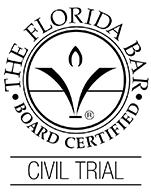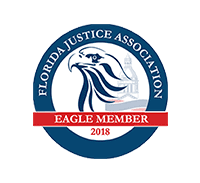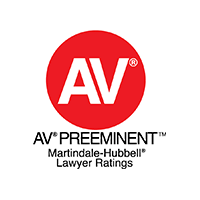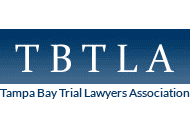Nonbinding arbitration is a proceeding, less formal than a jury trial, where both sides present their evidence to a neutral arbitrator, or an arbitration panel, who then decides the issues at hand in the case. If a judge decides to refer the parties to nonbinding arbitration, the parties must participate in the process. While the term “nonbinding” may imply that the parties are not bound to the arbitrator’s award, nonbinding arbitration can nevertheless have far-reaching consequences on the ultimate outcome of your personal injury case.
There are differences among the jurisdictions as to how and when arbitration is conducted. In Hillsborough County, each party selects their own arbitrator who then select a chief arbitrator to form a panel of three arbitrators. The parties may stipulate to the use of a single arbitrator in place of the previously described selection process. Each party presents its case in an informal setting to the arbitrator or panel of arbitrators. Other provisions found in an exemplar Order Referring Parties to Non-Binding Arbitration in the Thirteenth Judicial Circuit in and for Hillsborough County are as follows:
- Authority of the Chief Arbitrator. The chief arbitrator shall have authority to commence and adjourn the arbitration hearing and carry out other such duties as are prescribed by Section 44.103, Florida Statutes. The chief arbitrator shall not have authority to hold any person in contempt or to in any way impose sanctions against any person.
- Attendance. Individual parties or authorized representatives of corporate parties shall attend the arbitration hearing unless excused in advance by the chief arbitrator for good cause shown.
- Rules of Evidence. The hearing shall be conducted informally. Presentation of testimony shall be kept to a minimum, and matters shall be presented to the arbitrator(s) primarily through the statements and arguments of counsel.
While the parties retain their constitutional rights to a trial by jury, an arbitrator’s award may impact a jury’s verdict. Section 44.103(6), Florida Statutes, provides the following:
(6) Upon motion made by either party within 30 days after entry of judgment, the court may assess costs against the party requesting a trial de novo, including arbitration costs, court costs, reasonable attorney’s fees, and other reasonable costs such as investigation expenses and expenses for expert or other testimony which were incurred after the arbitration hearing and continuing through the trial of the case in accordance with the guidelines for taxation of costs as adopted by the Supreme Court. Such costs may be assessed if:
(a) The plaintiff, having filed for a trial de novo, obtains a judgment at trial which is at least 25 percent less than the arbitration award. In such instance, the costs and attorney’s fees pursuant to this section shall be set off against the award. When the costs and attorney’s fees pursuant to this section total more than the amount of the judgment, the court shall enter judgment for the defendant against the plaintiff for the amount of the costs and attorney’s fees, less the amount of the award to the plaintiff. For purposes of a determination under this paragraph, the term “judgment” means the amount of the net judgment entered, plus all taxable costs pursuant to the guidelines for taxation of costs as adopted by the Supreme Court, plus any postarbitration collateral source payments received or due as of the date of the judgment, and plus any postarbitration settlement amounts by which the verdict was reduced; or
(b) The defendant, having filed for a trial de novo, has a judgment entered against the defendant which is at least 25 percent more than the arbitration award. For purposes of a determination under this paragraph, the term “judgment” means the amount of the net judgment entered, plus any postarbitration settlement amounts by which the verdict was reduced.
How may this fee provision of Section 44.103 affect my lawsuit?
As with proposals for settlement, an arbitrator’s award will set a potentially costly benchmark to attain at trial. To illustrate how these provisions may affect a plaintiff in a personal injury lawsuit let’s take the following hypothetical:
Plaintiff files a lawsuit against the at-fault driver (Defendant) following a car crash in which she was injured. Before the case goes to trial the judge refers the parties to nonbinding arbitration. At arbitration, the arbitrator awards the Plaintiff $50,000 in damages. One of three results of this award could take place: 1) Plaintiff, unsatisfied with the result, files for a trial to occur to allow a jury to assess damages; 2) Defendant, unsatisfied with the result, files for a trial to occur to allow a jury to assess damages; or 3) the parties both decide to accept the award and conclude the matter.
In the first scenario, with Plaintiff requesting the jury trial, should Plaintiff obtain a judgment of 75% ($37,500) or less than the arbitration award, Plaintiff would then have to pay for Defendant’s attorney’s fees and costs which may very well exceed the actual judgment itself. In the scenario in which Defendant chose to move forward with a jury trial despite the arbitrator’s award then it would be they who are liable to Plaintiff for her attorney’s fees and costs should the judgment from the jury’s verdict meet or exceed 125% ($62,500) of the arbitrator’s award.
Should either party decide to proceed with a jury trial, the arbitrator’s award sets a target that could prove to be expensive should the judgment obtained meet or exceed the 25% cushion above or below that award.
Will my case benefit from nonbinding arbitration?
Determining whether your case would benefit from arbitration largely, and unsurprisingly, depends on the award itself. Other factors include available insurance coverage, liability issues, existing offers and proposals for settlement prior to arbitration. The involvement of nonbinding arbitration is on the rise and may only increase given the inevitable bottleneck of cases awaiting trial in the post-COVID era. Depending on the jurisdiction and the facts of each case, arbitration may serve your case well or poorly. As a trial attorney, I prefer the tried and true justice of a jury trial. However, each case has its own merits that may lend themselves well to nonbinding arbitration and developing a strategy to account for an arbitration award is essential now more than ever.
Author:

![]()


![cftla-member[2]](https://www.1800askdave.com/wp-content/uploads/2022/03/cftla-member2.png)
![cftla-member[3]](https://www.1800askdave.com/wp-content/uploads/2022/03/cftla-member3.png)










